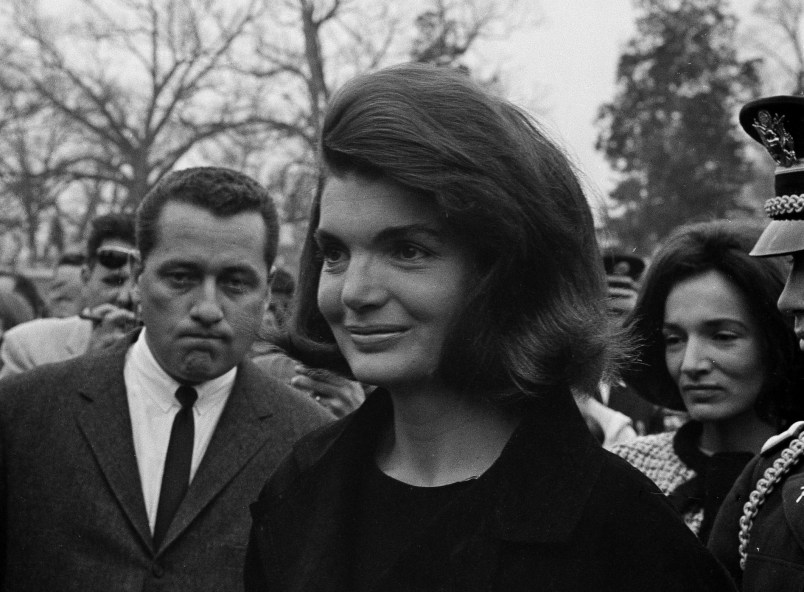To grasp fully the searing impact on American citizens of President John F. Kennedy’s assassination on November 22, 1963, one need only look to the massive outpouring of condolence mail sent to Jacqueline Kennedy in the immediate aftermath of her husband’s death.
On the first day mail was delivered to the White House after the assassination, Mrs. Kennedy received 45,000 letters. Within eight weeks that number had grown to 800,000, and to 1.5 million a year and a half later. A cross-section of 15,000 American letters, preserved at the Kennedy Library in Boston, capture vividly the response of “average” Americans to Kennedy’s death.Mail poured in from every state in the union, from big cities and small towns, from highly educated Americans and from those barely literate, from people of diverse racial and ethnic origins, as well as religious and political persuasions. The age of the writers ranged from five year-old children to centenarians.
These letters reveal that many Americans experienced Kennedy’s as a deeply personal loss. Many wrote that they felt as if a member of their own family had died.
Most Americans over the age of 55 can describe precisely where they were when they heard the news from Dallas. Yet the meaning Americans then attached to the assassination, their views of Kennedy, and their perspective on the state of the country immediately thereafter has been obscured by five decades of conspiracy theories, revelations about Kennedy’s private life and mixed evaluations of his presidency. In 1963, many Americans connected the president’s death to social and political upheaval in the country, much of it involving civil rights – an important fact often forgotten today.
Such profoundly felt grief reflected, in part, Kennedy’s unique status as the nation’s first “television president.” Kennedy served during a brief interval when the president enjoyed many of the benefits and few of the downsides of electronic media coverage. In these early days of television – prior to the 24-hour cable news cycle with its blend of reportage, fierce partisanship and critical commentary – prevailing journalistic mores put Kennedy’s medical history and personal transgressions out of bounds. Yet his appealing manner and vivacious family were on full display.
President Kennedy’s frequent press conferences – more than 60 held over the thousand days of his presidency – also captivated the public. Three of every four Americans watched these televised events, which were approved by 90 percent of those who viewed them. They undoubtedly contributed to Kennedy’s high average approval ratings which outstripped those of any modern President.
In their messages, Americans commonly linked Kennedy’s assassination to a climate of violence, hate and extremism they believed existed in the United States in 1963. Both supporters and opponents of Kennedy’s political efforts and programs expressed abhorrence at the violence they believed played a part in the death of the president. Some condemned the easy availability of guns that, as one writer put it, allowed a “madman with a mail order rifle” to deprive the nation of its elected leader.
A substantial number of letters associated the violence of the assassination with the upheaval around civil rights in the final months of Kennedy’s presidency. An outraged college student detailed a litany of injustices including “state governors [who] refuse to comply with federal law,” “court ordered school integrations” that were “met with hysteria by white parents,” the beating of civil rights demonstrators by law enforcement officials and “national leaders” who were “spat upon” – all actions by purportedly “rational” individuals.
“Yet we have the hypocrisy to profess amazement and horror,” she observed, “that some of our less rational citizens, incited to violence by the attitudes of the rational, are capable of shooting a Negro leader, then bombing a Negro church, and now assassinating the president.”
National turmoil over civil rights activism and resistance to desegregation were invoked by many writers as instrumental in Kennedy’s death, despite the lack of evidence tying the assassin, Lee Harvey Oswald, to civil rights conflicts. In a notable divergence from later responses to Kennedy’s death, very few letter writers advanced conspiracy theories or even showed much interest in the assassin.
Historians have criticized the Kennedy presidency for inadequate and halting efforts on behalf of racial equality. Yet in the fall of 1963, many Americans, black and white, pro and con, strongly associated John F. Kennedy with the civil rights cause. The letters they wrote suggest many Americans were ready for the efforts that the new president, Lyndon Johnson, would soon make to push through landmark civil rights laws in 1964 and 1965.
Ellen Fitzpatrick is a professor of history at the University of New Hampshire and a member of the Scholars Strategy Network. A documentary based on her book, Letters To Jackie, will be televised on TLC on Nov. 17 at 9 P.M.






